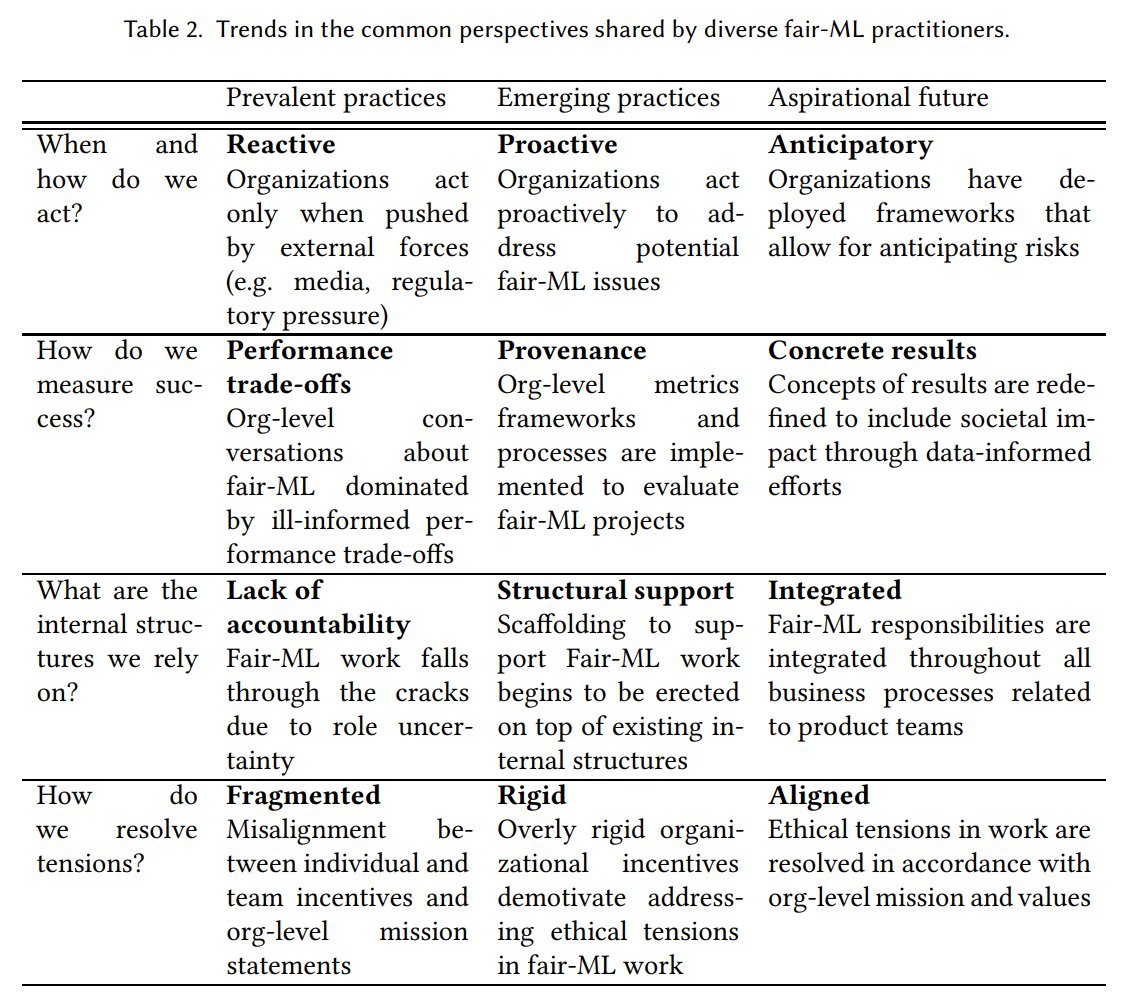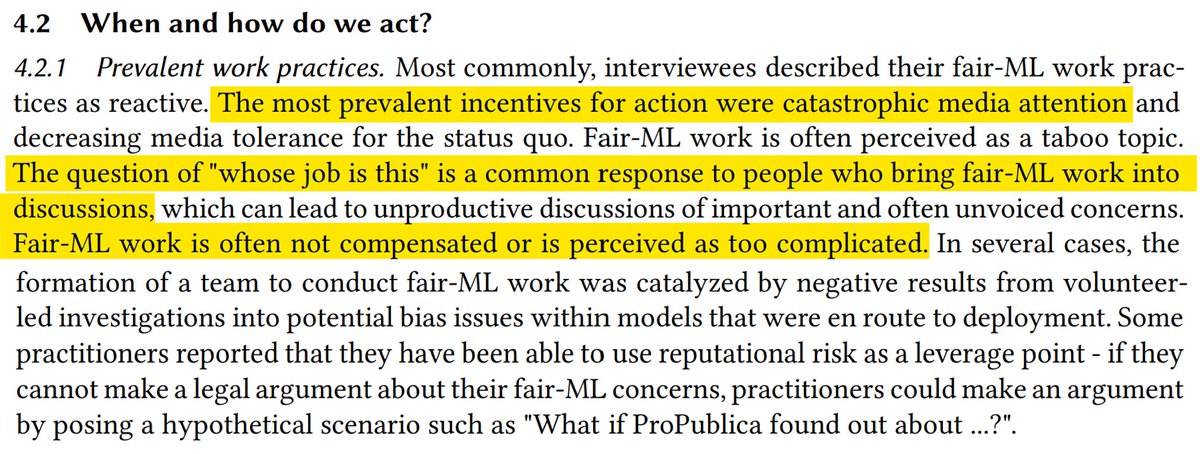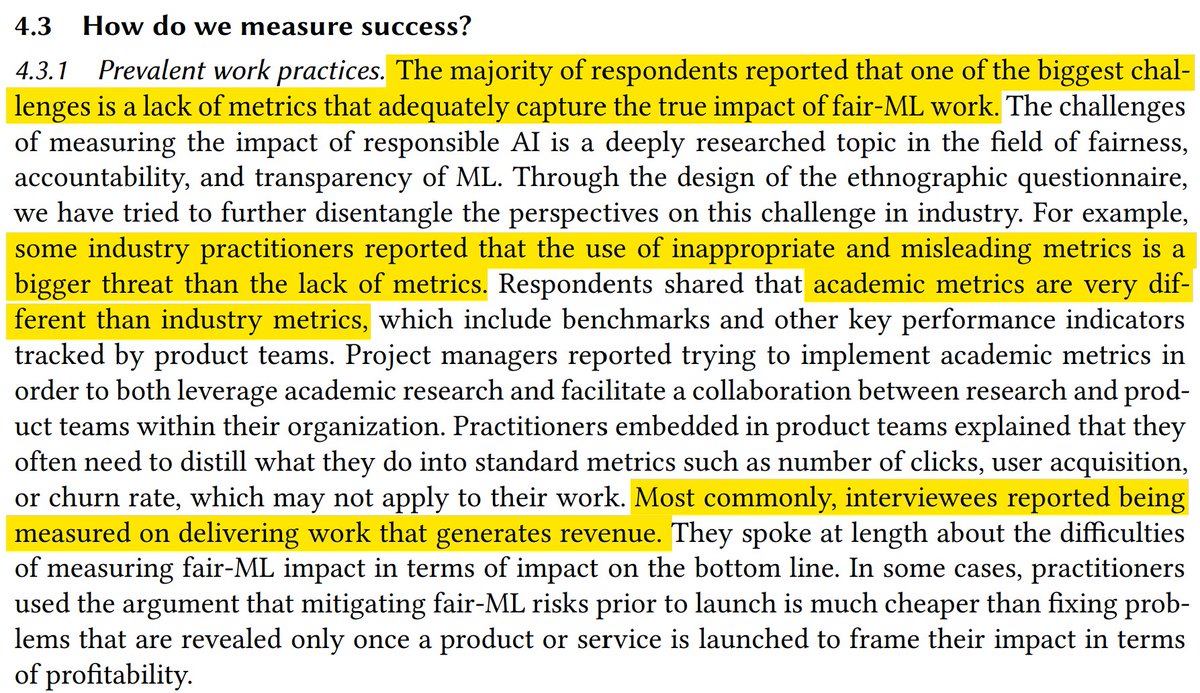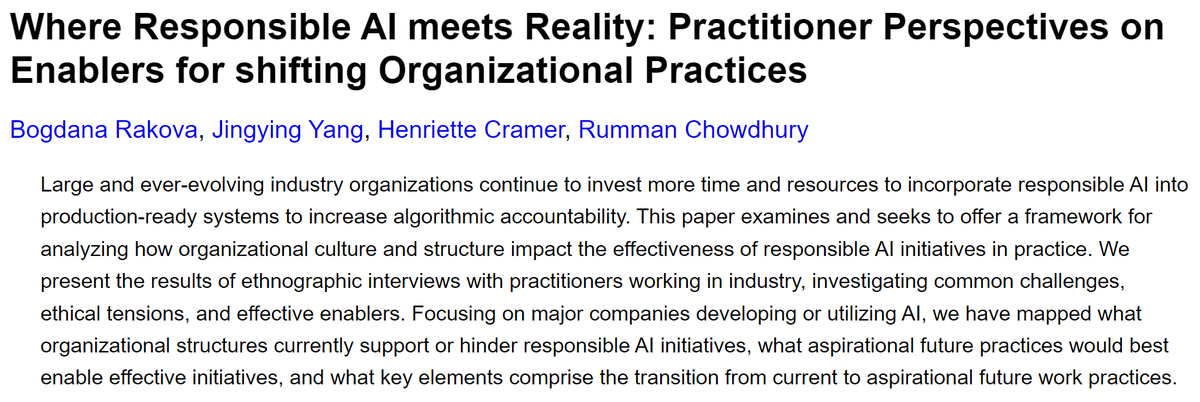Ethnographic study that interviewed 26 responsible AI practitioners. Prevalent at many orgs:
- reactive, respond only to external pressure
- ill-informed performance trade-offs
- lack of accountability
- misalignment btwn team & individual incentives
https://arxiv.org/abs/2006.12358 ">https://arxiv.org/abs/2006....
- reactive, respond only to external pressure
- ill-informed performance trade-offs
- lack of accountability
- misalignment btwn team & individual incentives
https://arxiv.org/abs/2006.12358 ">https://arxiv.org/abs/2006....
- The most prevalent incentives for action were catastrophic media attention & decreasing media tolerance
- Fair-ML work is often perceived as a taboo topic
- "Whose job is this" is a common response
- Fair-ML work is often not compensated or is perceived as too complicated
- Fair-ML work is often perceived as a taboo topic
- "Whose job is this" is a common response
- Fair-ML work is often not compensated or is perceived as too complicated
- One of the biggest challenges is lack of metrics that capture the true impact of fair-ML work
- Inappropriate & misleading metrics is a bigger threat than lack of metrics
- Most commonly, fair-ML practitioners reported being measured on delivering work that generates revenue
- Inappropriate & misleading metrics is a bigger threat than lack of metrics
- Most commonly, fair-ML practitioners reported being measured on delivering work that generates revenue
Metrics related challenges faced by fair-ML practitioners:
- time pressure leads org to focus on short-term & easier to measure goals
- qualitative skills not prioritized
- leaderships expects "magic": easy to implement solns that may not exist
- perf reviews don& #39;t account for it
- time pressure leads org to focus on short-term & easier to measure goals
- qualitative skills not prioritized
- leaderships expects "magic": easy to implement solns that may not exist
- perf reviews don& #39;t account for it
The above quotes are from "Where Responsible AI meets Reality: Practitioner Perspectives on Enablers for shifting Organizational Practices" by @bobirakova @jingyingyang @hsmcramer @ruchowdh
https://arxiv.org/abs/2006.12358 ">https://arxiv.org/abs/2006....
https://arxiv.org/abs/2006.12358 ">https://arxiv.org/abs/2006....

 Read on Twitter
Read on Twitter






